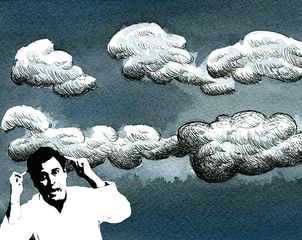Listening to most of the 12-hour debate in the Lok Sabha on the motion of no-confidence in the government of Narendra Modi, my mind went back exactly a decade, to July 2008. Then, the Congress-led United Progressive Alliance government of Manmohan Singh was facing a vote of no-confidence. The issue under the Parliament’s consideration on the two occasions could not have been more different. In July 2008, the government was defending its national security and nuclear policy. In July 2018, the Union government was being charged of not helping Andhra Pradesh, which finds itself in financial distress.
The debate on the nuclear deal was elevated. The best of parliamentary talent on all sides was on display. While prime minister Manmohan Singh was himself prevented from replying to the debate, others who spoke from across most political parties left the audience, that tuned in to the debate, more knowledgeable and with a greater respect for its elected representatives.
By contrast, the July 2018 debate was trivialised and held at a disappointingly superficial level. To begin with, the issue was not of national importance, and, so, did not engage the best minds in the Parliament. The motion itself was moved by a first-term member who diligently read out a written text, with an American accent. The debate moved on virtually ignoring the reason for the assemblage. The speakers that followed killed the debate with dullness. The high point at mid-day was Congress leader Rahul Gandhi’s half-researched accusations, and a well-staged hug-and-wink drama.
Think of the opposition’s attack on Manmohan Singh in July 2008. From Yashwant Sinha to Mulayam Singh Yadav, from Asaduddin Owaisi to Omar Abdullah, we heard some of the best parliamentary speeches. From the treasury benches, Pranab Mukherjee, Kapil Sibal and Anand Sharma spoke eloquently defending the government.
This July, we not only had the sorry spectacle of weak speeches from the opposition and the treasury benches, but even the prime minister let us down. It remains a puzzle that he chose to read out a laundry list of his government’s achievements, after having made the initial political remarks in response to Rahul Gandhi’s hug-wink drama. All in all, it was not a satisfying day for those who enjoy the cut and thrust of intelligent parliamentary sparring.
Could it be that between the 14th Lok Sabha (2004-09) and the 16th Lok Sabha (2014-19), there has been a precipitous fall in Parliament’s debating standards? Language may well be a barrier for all non-Hindi speakers. The best speeches are still made either in English or by those at home in Hindi. Perhaps, a Telugu Desam Party (TDP) MP could have delivered a stirring speech if he had spoken in Telugu.
For me the second disappointment was to see that even after having settled down to running their respective governments, the TDP and Telangana Rashtra Samithi have not yet overcome the animosity generated by the process of bifurcation. Of course, there are ego conflicts underlying much of this anxiety—N. Chandrababu Naidu has not yet come to terms with the fact that K. Chandrashekar Rao has got the better of him.
It remains to be seen whether Naidu’s anti-Modi line can yield electoral benefits for him, and whether Modi’s warm appreciation is an asset or a liability for Rao. The squabbling Telugus have reduced their own relevance in national politics. There was a time when the Andhra Pradesh chief minister was treated with utmost regard in New Delhi. Today, Naidu is left whining and reminding Modi that he is ‘senior’ to him by six years having become chief minister in 1995, while Modi did so only in 2001. Power recognises power, not seniority.
Baru is an economist and a writer. He was adviser to former prime minister Manmohan Singh.


